Ancient JinJi Mahjong
Ancient JinJi Mahjong
Aug 4, 2025
207.48 MB
4.3.6
5.0
5,000,000+
Description
Contents
The legacy of ancient games often transcends time, offering a window into the cultural fabric of their origins. JinJi Mahjong, a timeless pastime, reflects the evolution of Chinese society through its intricate gameplay and enduring popularity.
The Rich History of Ancient JinJi Mahjong
- The roots of JinJi Mahjong trace back to the Qing Dynasty, a period rich with cultural tapestry.
- Developed in the region of JinJi, the game combined local traditions with the strategic elements of Chinese culture.
- Ancient JinJi Mahjong was a blend of luck and skill, with tiles symbolizing different virtues and deities.
- The game’s tiles, featuring intricate designs, were a reflection of the region’s artistic prowess.
- Masters of JinJi Mahjong were revered for their ability to read opponents and adapt their tactics.
- Legends of ancient JinJi Mahjong often revolved around tales of cunning and wit.
- Over time, the game evolved, but the essence of its historical roots remained deeply ingrained.
- Today, JinJi Mahjong continues to be cherished for its historical significance and cultural legacy.
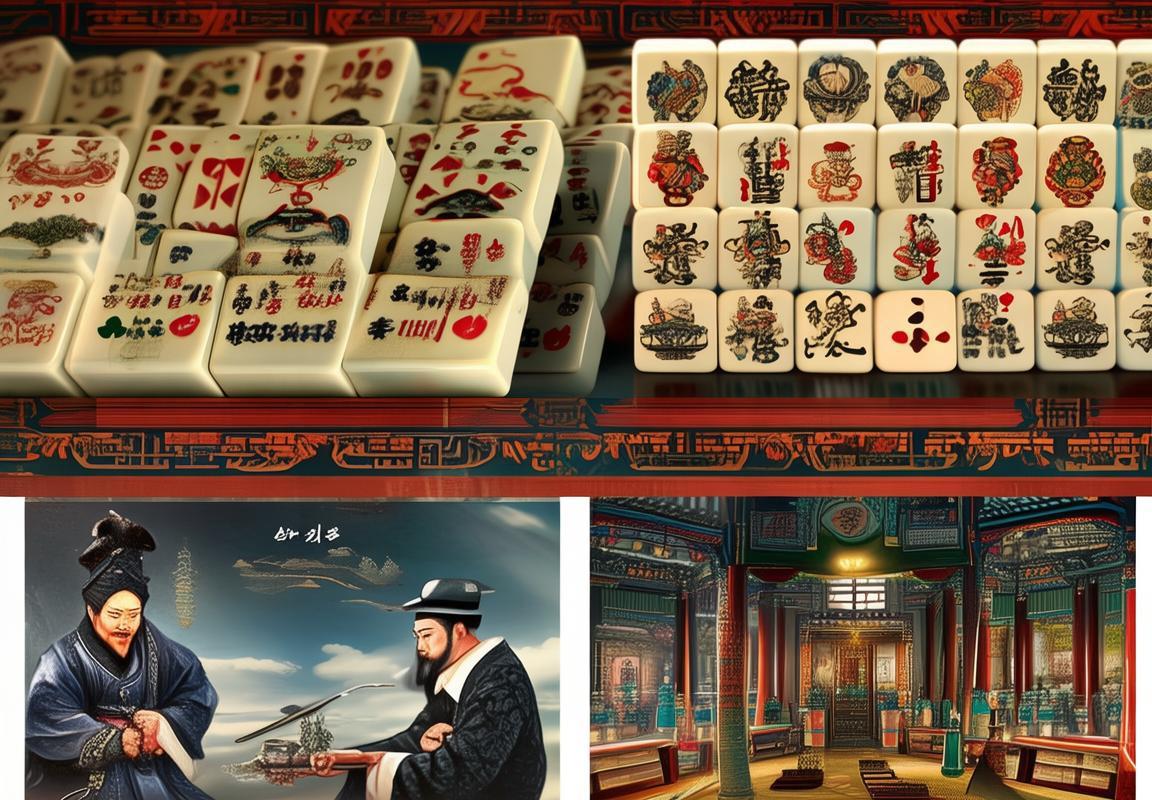
Originating in the Qing Dynasty
- Deeply rooted in the Qing Dynasty, JinJi Mahjong emerged in the 18th century.
- The game’s origins trace back to the court, reflecting royal preferences and status.
- Intricate tile designs and symbols were inspired by traditional Chinese art and philosophy.
- As the Qing Dynasty waned, JinJi Mahjong spread among commoners, adapting to various regions.
- Variants developed, each with unique rules and regional customs, showcasing diverse gameplay.
- The game became a symbol of social gatherings, fostering community and cultural exchange.
- JinJi Mahjong’s strategic depth was praised, requiring skill, memory, and intuition.
- The game’s longevity lies in its adaptability and the enduring appeal of its challenges.
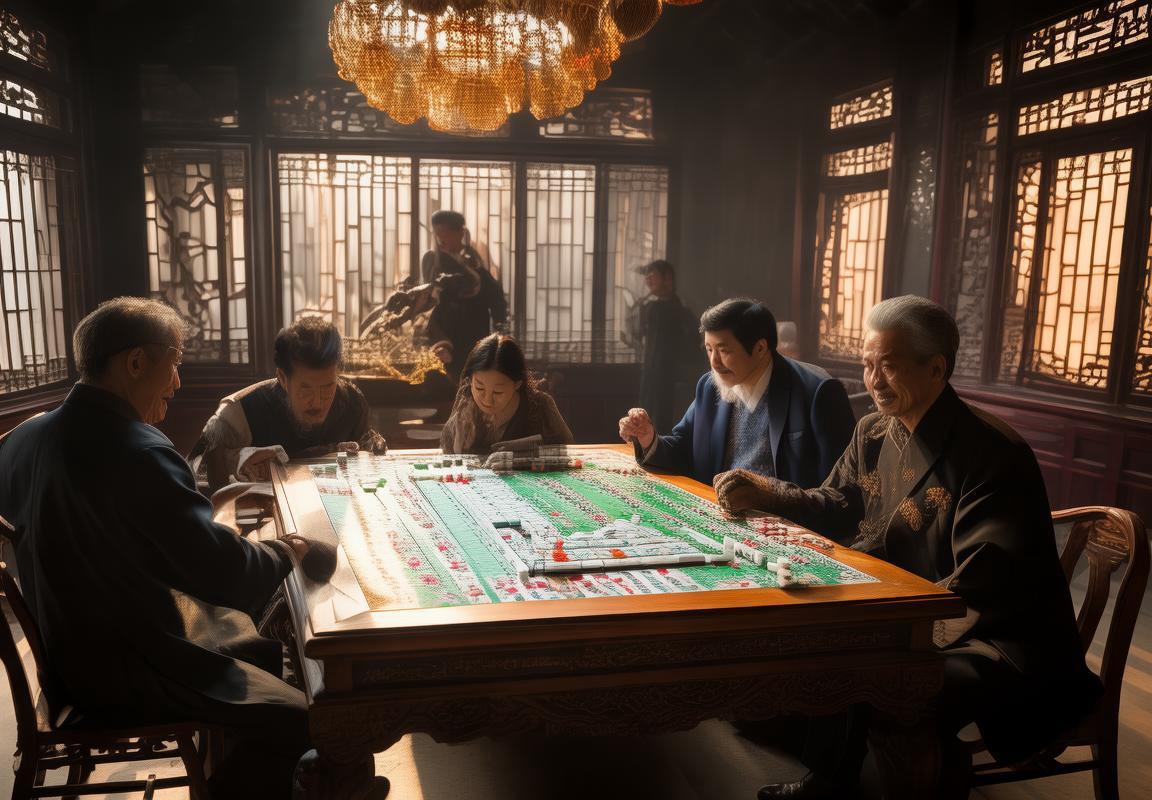
Incorporating Local Customs and Strategies
- The game of JinJi Mahjong was deeply rooted in local traditions, blending with the cultural tapestry of its birthplace.
- Players from diverse backgrounds contributed unique strategies, shaping JinJi’s diverse gameplay.
- Local festivals and rituals often featured Mahjong, reinforcing its significance within the community.
- The use of local tiles and symbols added a layer of cultural identity to each game.
- Strategies varied with regions, each group developing techniques suited to their environment.
- In some areas, the game was a quiet pastime, while in others, it was a lively social event.
- Local legends and tales often revolved around the game, further embedding it in cultural heritage.
- The game’s adaptability allowed it to evolve with local customs, maintaining its relevance over time.
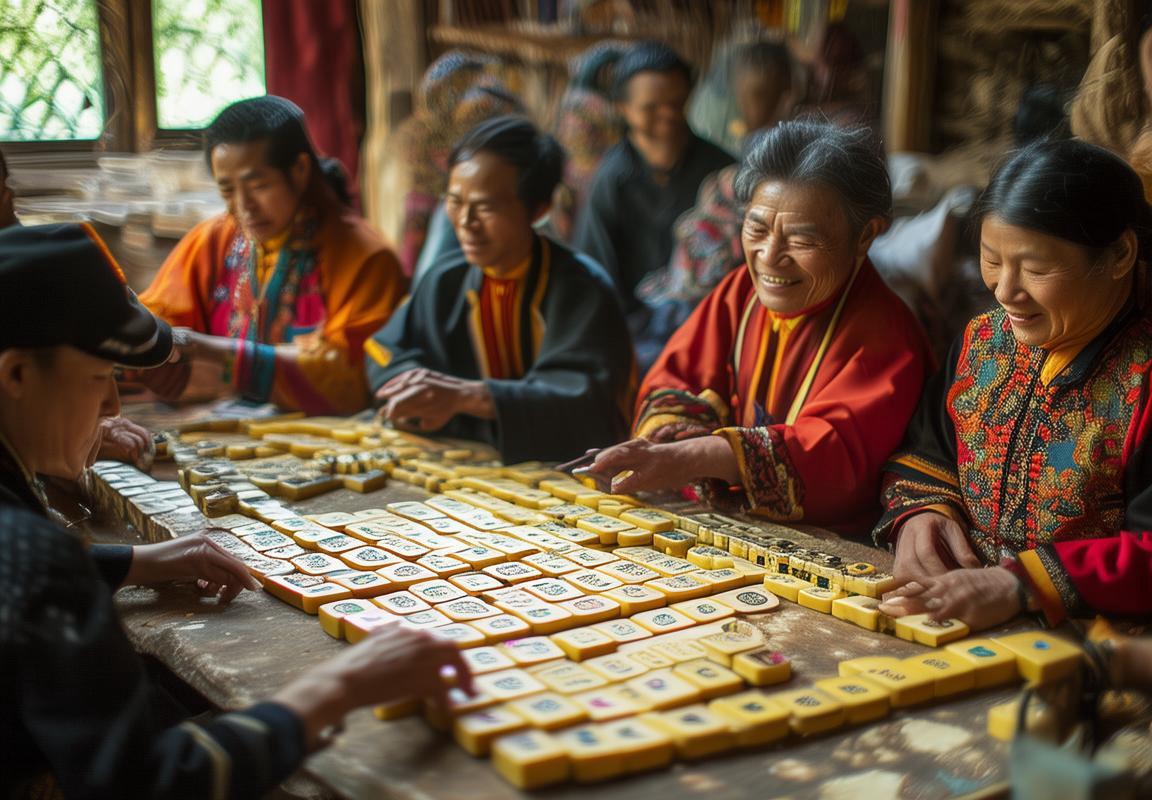
Majestic Tiles and Intricate Gameplay
Intricate patterns adorn the tiles, each with its own meaning and significance. The ancient JinJi Mahjong tiles are a testament to artistic finesse.
The game’s tiles are divided into three main suits: dots, dragons, and winds. Each suit carries a unique symbolism, reflecting the cultural values of the Qing Dynasty era.
Players must strategize with a hand of 14 tiles, combining them into sequences and pairs. The beauty of JinJi Mahjong lies in the complexity of these combinations, requiring both skill and intuition.
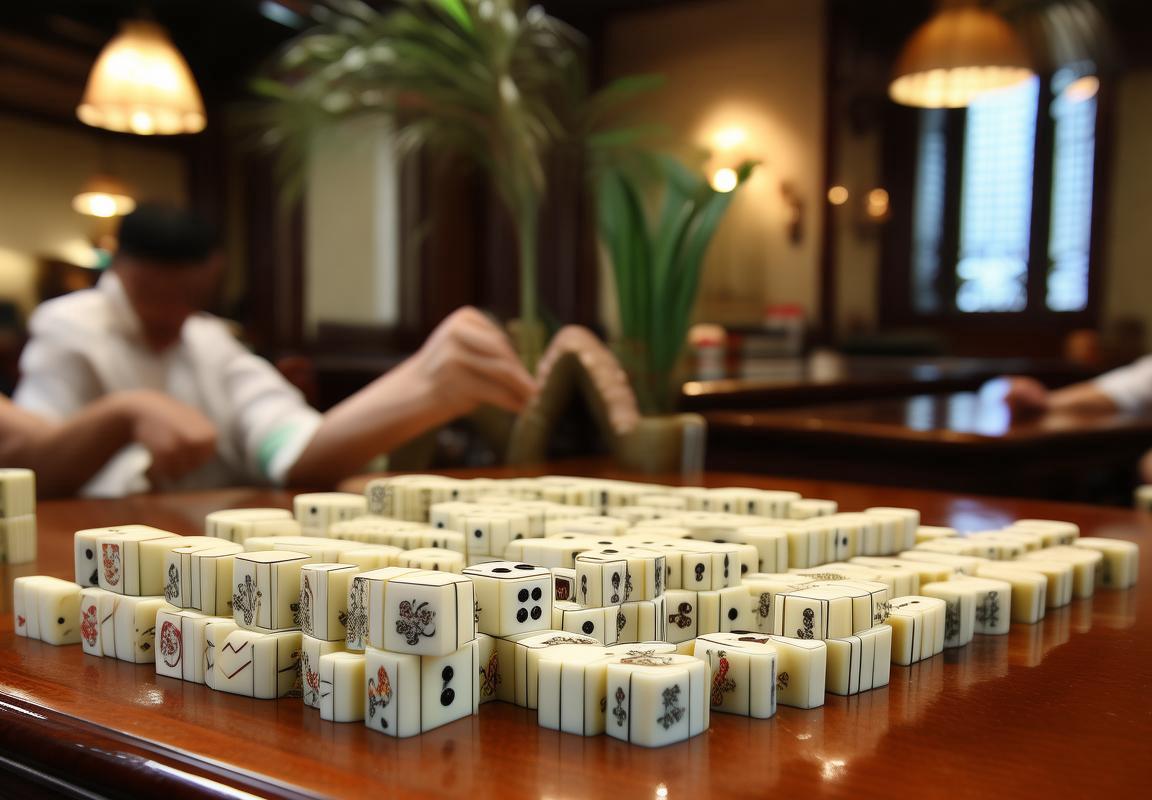
A Symbol of Intelligence and Skill
In the realm of traditional Chinese games, the significance of intelligence and skill is exemplified by the game of JinJi Mahjong. This ancient pastime, deeply rooted in cultural heritage, has evolved into a symbol of mental prowess.
The game of JinJi Mahjong is not just about luck; it requires strategic thinking, memory, and a keen sense of timing. Players must memorize their opponents’ moves and adapt their strategies accordingly, turning each hand into a chess match of sorts.
As a symbol of intelligence, JinJi Mahjong is celebrated for its ability to challenge the mind. It encourages players to think several moves ahead, plan their actions, and anticipate the moves of others. This mental agility is a testament to the game’s ability to sharpen cognitive skills.
Skill in JinJi Mahjong is not merely about playing cards; it’s about understanding the nuances of the game. Players must master the art of tile management, hand formation, and the ability to bluff and read opponents. Mastery of these elements is a hallmark of a true mahjong expert.
The cultural significance of JinJi Mahjong as a symbol of intelligence and skill is profound. It represents the fusion of entertainment and intellectual stimulation, making it a favored pastime among scholars, artists, and common folk alike. The game is often played in social settings, fostering communication and camaraderie.
Over time, JinJi Mahjong has become an integral part of Chinese culture, embodying the values of wisdom, respect for tradition, and the pursuit of excellence. Its legacy extends beyond the gaming table, influencing various aspects of social life and fostering a sense of community.
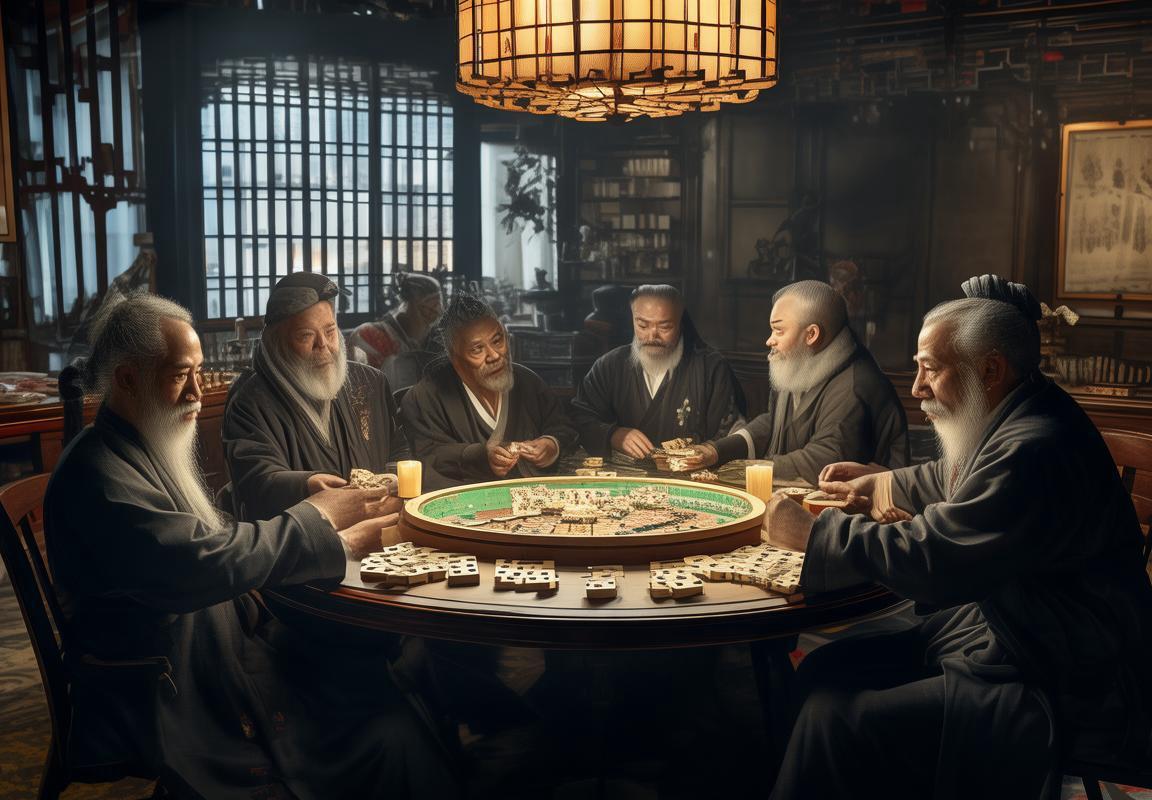
Evolution Over Centuries
- The game’s roots trace back to ancient China, blending regional traditions.
- Innovations in tile designs and gameplay strategies emerged, reflecting local customs.
- JinJi Mahjong’s popularity soared, adapting to diverse social and cultural contexts.
- Techniques like ‘chow’ and ‘ping’ became integral to the game, showcasing skill.
- The game’s evolution included the introduction of new tiles and rules.
- Mahjong’s journey reflects the changing face of Chinese society through the ages.
- From aristocratic pastimes to common folk entertainment, its reach expanded.
- The game’s evolution shows resilience and adaptability, a testament to its timeless appeal.
- JinJi Mahjong’s survival through centuries speaks to its enduring cultural significance.
- Its evolution has preserved the essence of traditional Chinese values and wisdom.
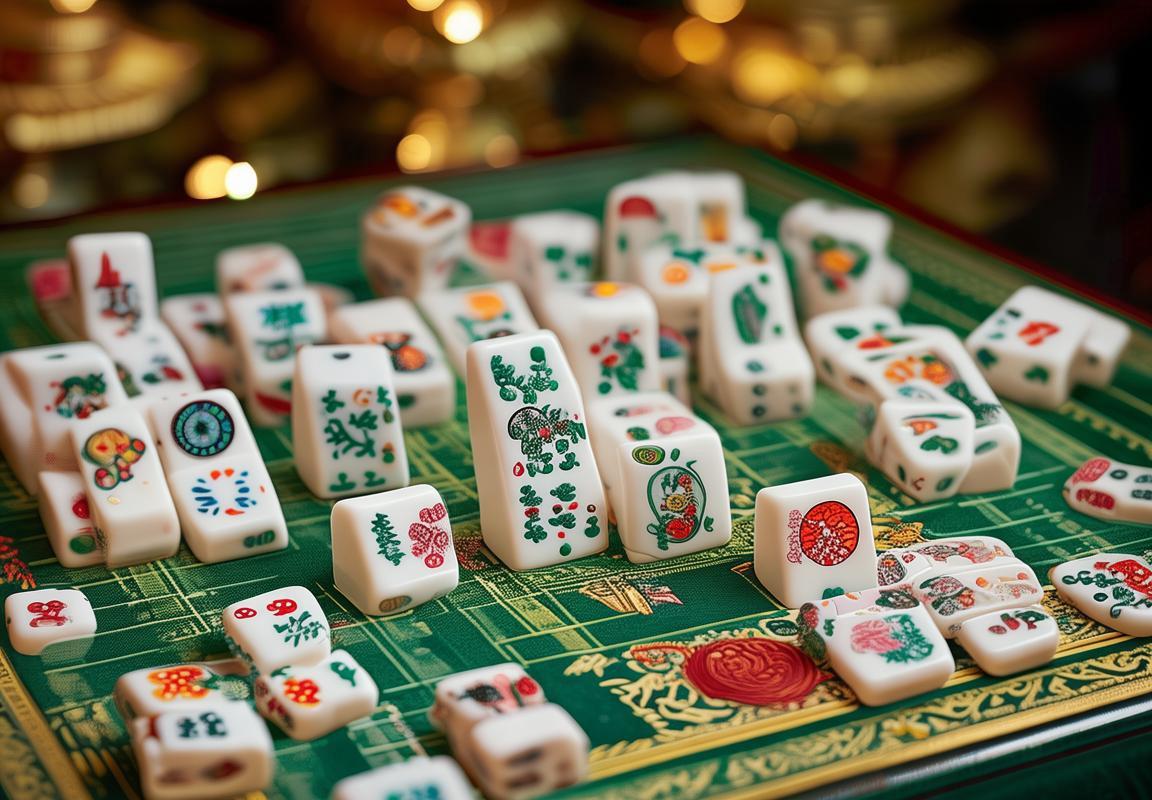
Cultural Significance in China
- JinJi Mahjong’s roots intertwined with Chinese festivals, embodying communal joy and strategic play.
- It’s not just a game; it reflects local wisdom, passed down through generations, in every hand dealt.
- In regions like Jiangsu, the game’s cultural tapestry is woven with tales of ancestors, reinforcing family ties.
- Artisans craft intricate tiles, each with its own character, adding a touch of art to the traditional game.
- Marrying local superstitions and etiquette, a game of JinJi becomes a ritual of respect and harmony.
- During the Spring Festival, family gatherings revolve around the game, a sign of prosperity and unity.
- In the workplace, JinJi Mahjong fosters teamwork, teaching the value of collaboration and patience.
- Educational institutions incorporate the game, teaching children about patience, strategy, and cultural heritage.
- As modern China embraces globalization, JinJi Mahjong remains a steadfast link to ancient traditions.
- In every corner of the nation, the game is more than just entertainment; it’s a cultural cornerstone.
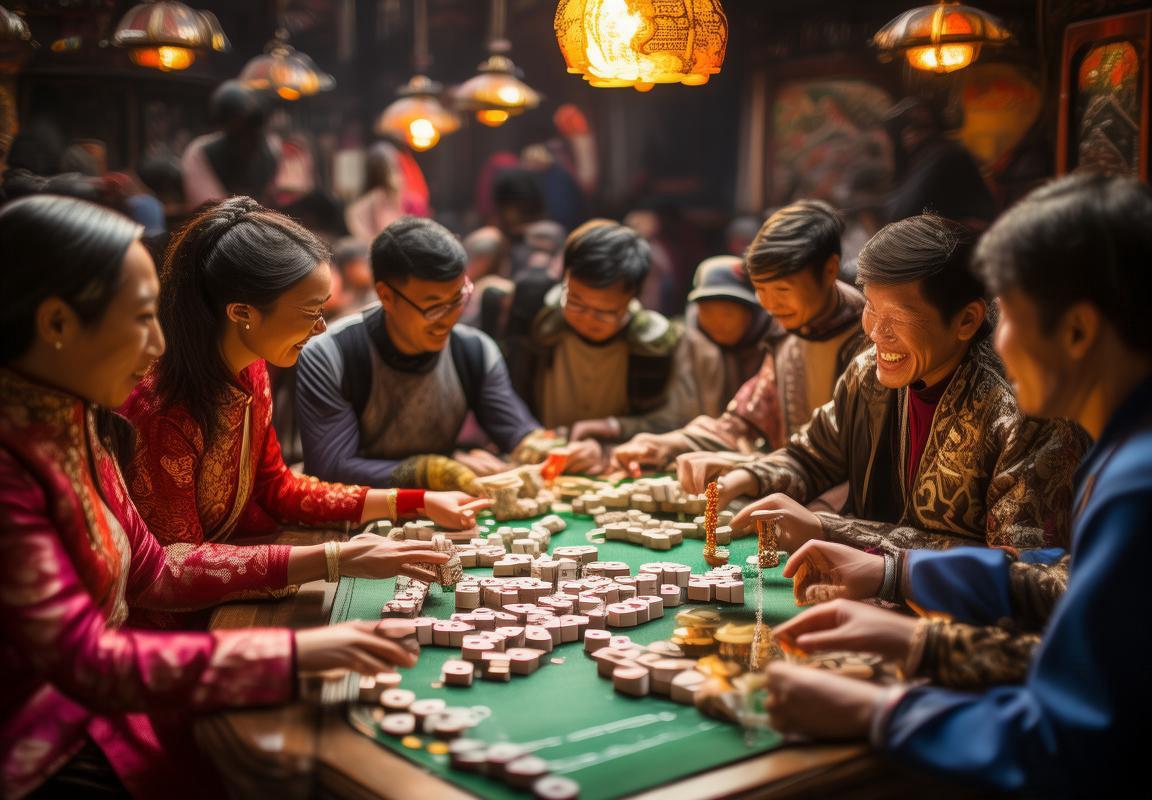
JinJi Mahjong’s Legacy in Modern Times
- JinJi Mahjong, once a game of the elite, now thrives in communities across China, reflecting its universal appeal.
- The game’s intricate rules and diverse strategies have evolved, blending ancient wisdom with contemporary gameplay.
- Local customs have infused JinJi Mahjong with unique flair, from the hand of tiles to the art of betting.
- Festivals and gatherings often feature Mahjong, showcasing its role in Chinese social life and cultural identity.
- As technology advances, online platforms have made JinJi Mahjong accessible to players worldwide, preserving its legacy.
- The game’s popularity has spurred the creation of educational resources, ensuring its survival in the digital age.
- JinJi Mahjong’s legacy extends beyond gaming, influencing art, literature, and even political discourse in modern China.
- The game’s adaptability and cultural significance have cemented its place in the annals of Chinese history and heritage.
Images





Download links
How to install Ancient JinJi Mahjong APK?
1. Tap the downloaded Ancient JinJi Mahjong APK file.
2. Touch install.
3. Follow the steps on the screen.












